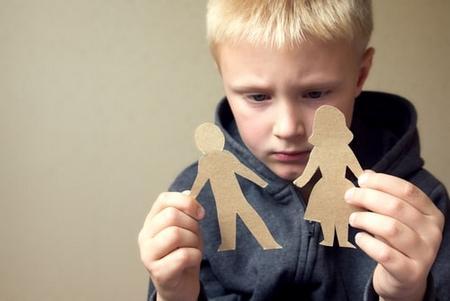How Are Child Custody Disputes Resolved in an Illinois Divorce?
 During a divorce, spouses will often encounter multiple types of disagreements over the various issues that will need to be addressed in order to end their legal partnership. For parents, disputes related to child custody will often be some of the most contentious issues, and spouses may have completely different ideas about how to make decisions regarding their children or expectations about when children will live with each parent. By understanding how Illinois law addresses these issues, parents can determine how to reach workable solutions, or they can prepare to advocate for their rights through litigation in court.
During a divorce, spouses will often encounter multiple types of disagreements over the various issues that will need to be addressed in order to end their legal partnership. For parents, disputes related to child custody will often be some of the most contentious issues, and spouses may have completely different ideas about how to make decisions regarding their children or expectations about when children will live with each parent. By understanding how Illinois law addresses these issues, parents can determine how to reach workable solutions, or they can prepare to advocate for their rights through litigation in court.
Factors Considered in Child Custody Disputes
Parents are usually encouraged to work together to resolve issues related to their children and create a parenting plan that details how they will share parental responsibilities and parenting time. Parents can make sure they are approaching these negotiations the right way by understanding the factors that courts may consider when making decisions about child-related issues. This can also give them an understanding of what issues a judge may look at if negotiations break down and litigation will be required to resolve these matters.
In all issues related to child custody, the decisions made should provide for children’s best interests. The factors that may play a role in determining the allocation of parental responsibilities and the division of parenting time include:
-
The wishes of the parents and the wishes of the children, while taking into account a child’s age, their level of maturity, and their ability to express their desires.
-
The physical and mental health of all parties involved, including the parents, the children, anyone else who lives in either parent’s home, or any other family members who will be providing care for children.
-
Whether each parent will be able to provide for the children’s ongoing needs.
-
How the children have adjusted to living in their current home, attending their current school, and being a member of their community. This may affect a child’s ability to adjust to a changing living situation or divide their time between two homes.
-
Whether the parents are willing and able to cooperate with each other as they address important child-related issues and make decisions for their children.
-
Whether each parent is willing to encourage their children to have a close relationship with the other parent.
-
Each parent’s level of participation in making decisions for their children while they were married.
-
Each parent’s participation in child care and activities involving their children in the two years before filing for divorce.
-
Any agreements between the parents while they were married about how they would handle child-related issues or the course of conduct they followed during their marriage.
-
The distance between the parents’ homes and whether they will be able to work out arrangements for transportation of their children at the beginning and end of each parent’s parenting time.
-
Whether there are any issues that may affect the children’s safety and well-being, such as a history of abuse or substance use by a parent or someone else who lives in either parent’s household.
Contact Our St. Charles Child Custody Lawyers
Whether you are looking to negotiate a parenting agreement with your spouse or believe that divorce litigation will be necessary to resolve your disputes, Goostree Law Group can provide you with representation and advocate for your children’s best interests. Contact our Kane County child custody attorneys at 630-584-4800 to schedule a free consultation today.
Source:
https://www.ilga.gov/legislation/ilcs/ilcs4.asp?ActID=2086&ChapterID=59&SeqStart=8300000&SeqEnd=10000000











